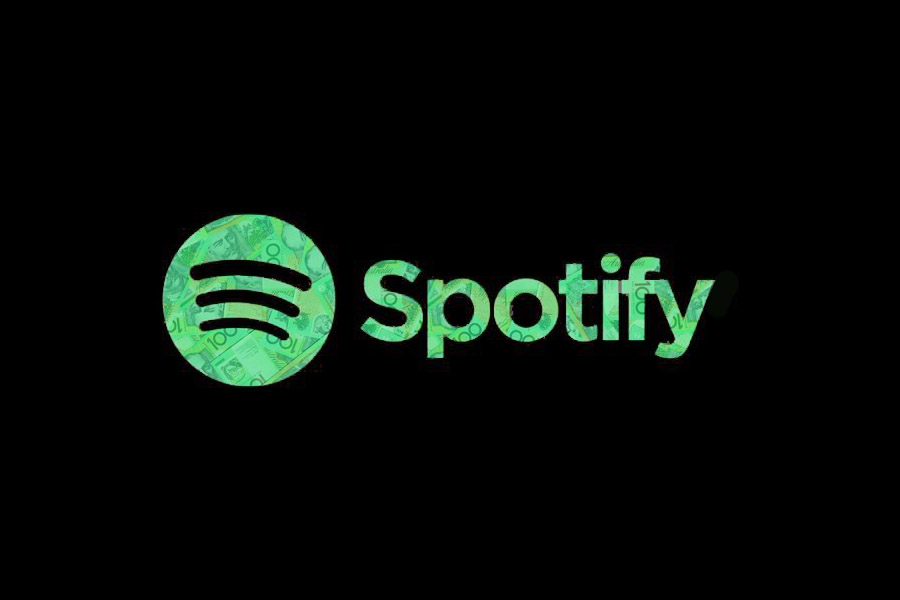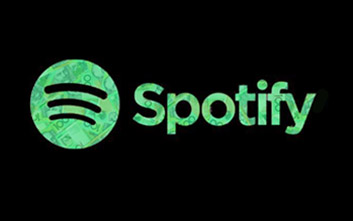The power of curated streaming playlists cannot be understated. With their capacity to break unknown artists on an international scale, the recording industry is using every means at their disposal to cast their influence over these lists and those creating them. Looking above and below the board raises questions as to whether the sleazier business practices of radio’s past are slithering their way into the world of streaming present.
As streaming services grow to scale, they steadily erode terrestrial radio’s monopoly on breaking artists. Diehard fans alongside a newer generation of listeners are increasingly discovering their music exclusively online. While terrestrial radio still commands a majority audience share, many suggest streaming services could very well become the preferred method for listening to new music.
This article appears in Happy Mag Issue 6. Grab your copy here.

Is a golden era of streaming passing us by in the blink of an eye?
As of 2017, market leader Spotify hosts playlists which are hitting into the millions of followers. Its Are & B list boasts a 3.6 million plus subscribership, while RapCaviar enjoys more than 8 million. These seemingly harmless collections of tunes dwarf the reach, scale, and engagement of humble domestic radio. To provide an example of scale, as of 2015 leading Aussie broadcaster triple j was dealing in a figure of around 2 million listeners per week across five capital cities.
Such playlists operate as simply as you might expect. Something appears on a popular list and listeners add it to their own. From here, friends of these listeners follow suit and it’s at this point that an artist can explode.
Lorde provides an enduring example. In 2012, Ella Yelich-O’Connor was virtual unknown outside of Australia and New Zealand. Her debut single, Royals, was uploaded to Spotify in March 2013. It languished in relative obscurity before cropping up on tech billionaire Sean Parker’s Hipster International Spotify playlist on April 2nd. Six days later it was jumping into the Spotify charts. By June, Royals had been picked up by commercial radio in the US. The streaming sparked a buzz, momentum and attention which paved the way for the 16-year-old’s debut album and global chart-topper Pure Heroine.
Lorde’s story is impressive but not unique. There are hosts of interested parties seeking to emulate this path to lucrative success. And in the cut-throat world of music industry megabucks, not everybody is content playing above the board.
Yet shady behaviour is nothing new. A silent and clever game, payola refers to circumstances where outsider interests provide radio DJs undisclosed bribes to ensure airplay. Whether it’s by way drugs, money, gaming consoles, sex workers or other gifts, payola has been an ongoing issue in the US since the ‘20s.
It first came to public attention during the heyday of rock ‘n’ roll at which time the practice had become near-institutionalised. That is until a US Senate investigation in 1959 blew the scandalous practice wide open. The ensuing litigation publicly shamed many of the nation’s most influential radio tastemakers and led to the explicit illegalisation of the practice in 1960.
Despite the massive slap on the music industry’s wrist, allegations of payola have continued to emerge. They flared up again in 1986. And in 2005 a vigorous industry probe spearheaded by the New York State Attorney General resulted in Sony BMG, Warner Music Group and Universal shelling out 10, 5 and 12 million dollars respectively in government settlements a result of the investigation
The swing of it this time around was that labels weren’t passing out money, but gifts. Sony was the first to admit wrongdoing and confessed to providing prominent programme directors expensive laptops, PlayStation 2 consoles and games as well as pricey holiday airfares. In at least one instance these inducements were passed off as having been gifts to fictitious winners of radio giveaways in order to disguise the actual transactions.
Warner followed suit conceding they had padded the pockets of radio employees with iPods and tickets to prime sporting events. Upon reaching the largest of this string of settlements Universal also verified that they had to have provided laptops and sports tickets to radio staffers while throwing in a few luxury hotel visits for good measure.
Despite these busts many commentators still suggest that the majors continue to dominate commercial radio via a tight network of interpersonal relationships and a staggering amount of cash. A much-maligned figure, independent promoters emerged following the ‘60s in various guises as a middlemen between majors and radio stations.
An ‘indie’ is first paid a general retainer by the label to exert influence on program directors to add songs to a station’s playlist. This is typically through providing them money, merchandise and other gifts for giveaways or promotions rather than airplay of specific songs. These figures often take a second bite through being retained by radio stations to act in the capacity of a music advisor. This isn’t illegal payola as such and so despite continued external scrutiny they continue to operate on what some would contend is a nebulous area of industry regulation.
Payola has never been an issue within Australia; and it is widely denied by those within the broadcast industry. This claim is supported by most commentators, whose view is that Australia has traditionally been too small a market to warrant payola-like inducements.
Yet the world wide web isn’t beholden to geographical borders. Streaming operates on an international scale. The curation of streaming playlists and traditional radio hold a great deal in common. Sure, there’s market research, algorithms and other data, but at the heart of it, streaming lists like radio rotations are built upon the informed and savvy selections of trusted tastemakers. Or so the listener would hope.
In June this year, Spotify trialled a ‘Sponsored Song’ feature on a limited number of free accounts. At first glance, it seems innocuous. Segregated within its own label tag above the playlist tracks, it provided a space where major labels could pay promote their own releases as if it suggested by Spotify.
Legally it was entirely above the board and users could opt out in their settings menu. Yet Spotify’s benign deployment of sponsored songs could be setting a dangerous precedent.
If deployed it would allow brands to place their paid-for content not above or beside, but within Spotify’s own playlists as well as user-generated playlists. For the trial, they partnered exclusively with major labels to plug new music to non-subscribers. To the unassuming listener, a coyly-placed insert seems to trade off of the natural goodwill a listener invests in their playlists. As far as details of the trial or details of how much money was changing hands to make this happen, smaller labels and independent artists were left in the cold.
Technically speaking the proposed practice doesn’t violate the legal barriers preventing radio payola. Spotify is a streaming service and not a radio station. As such it is subject to different regulations. Yet this is increasingly problematic in the sense in that, at least from the vantage of a listener and music fan, streaming services are rapidly occupying the role of the traditional radio tastemakers who are required to rigorously disclose sponsorship.
Spotify is at least sticking to some ethical pretences when it comes to maintaining the sanctity of its playlists. Services like itself explicitly prohibit list creators and third-parties from accepting payola-like bribes. But policing and enforcing this is a different matter altogether.
Digital playlist promotion companies are guns for hire who wage streaming campaigns to promote the success of big-name artists. They achieve this through securing placements in buzz-generating playlists. Billboard’s 2015 investigation into the now-defunct Digmark quoted a source that suggested many of radio promotions dirtier practices are now being slid across to streaming. The foremost of these is paid playlist inclusion.
According to Billboard, independent playlisters had been caging between $2000 and $10,000 US to include a song. Other had accepted payment of ‘consultation fees’ in exchange for feedback from curators on new tracks. There were also allegations that industry power brokers were buying influential playlists outright.
In response to these initial outcries, Spotify publicly cracked down on these prohibited practices. “We are absolutely against any kind of ‘pay to playlist’, or sale of playlists. It’s bad for artists and it’s bad for fans,” a representative informed the Financial Times.
But it’s not just the big players; larger partnerships may also be impacting what we hear. When Pandora partnered with Merlin – the world’s largest digital rights agency representing independent music labels – late last year, the pair’s agreement included a ‘steering clause’.
A bargaining chip exchanged for lower royalty rates, the clause stipulated that Pandora would make a considered effort to promote Merlin’s music. The most likely way was this could be achieved is by altering Pandora’s listening algorithms to favour music from Merlin’s catalogue. Spotify entered into its own agreement with Merlin in April this year although whether this agreement also contained such a clause is unknown.
Streaming algorithms and playlists’ have democratic potential. They hold power to level the playing field for artists who are locked out from the system of mainstream radio. A fundamental truth is that distorting the intuitive selection of music is bad for artists and fans. Forced content reduces the impact of legitimate creatives whose work should succeed on its own merit and potential. Like payola, paid-for content can distort the distribution of listeners preferences.
But there’s room for contention too. Streaming’s leaders are losing money hand over fist. If streaming doesn’t continue to grow to scale as optimistically envisioned, they may find themselves in desperate need of additional income to stay afloat.
Another view is that payola ain’t even all that bad. Book publishers, grocery stores, and just about any retailer imaginable accept money in return for prominent and undisclosed placements within their stores. Just because something is paid for doesn’t mean it’s necessarily unpopular. In the increasingly consumer-led market for music, this certainly isn’t the case. There’s a hint of falsity in the idea that just because a big record company pays for something to be promoted that it will be something a user doesn’t want to hear.
Do revenue-raising projects like Spotify’s ‘Sponsored Songs’ sidestep the stigma of payola, or are they reimagining the age-old practice within the digital sphere? Has this unsolicited invitation of major labels into personal playlisting created a slippery slope? In addition to jaunted algorithms and shady backdoor deals, these uncertainties cast a concerning outlook.
Presently there’s a sense of freedom and breadth within the world of music streaming. It’s a big part of what has drawn so many millions of listeners to these platforms in the first place. But if users aren’t casting a critical eye (or ear), this experience could be a fleeting one at best.
This article appears in Happy Mag Issue 6. Grab your copy here.



